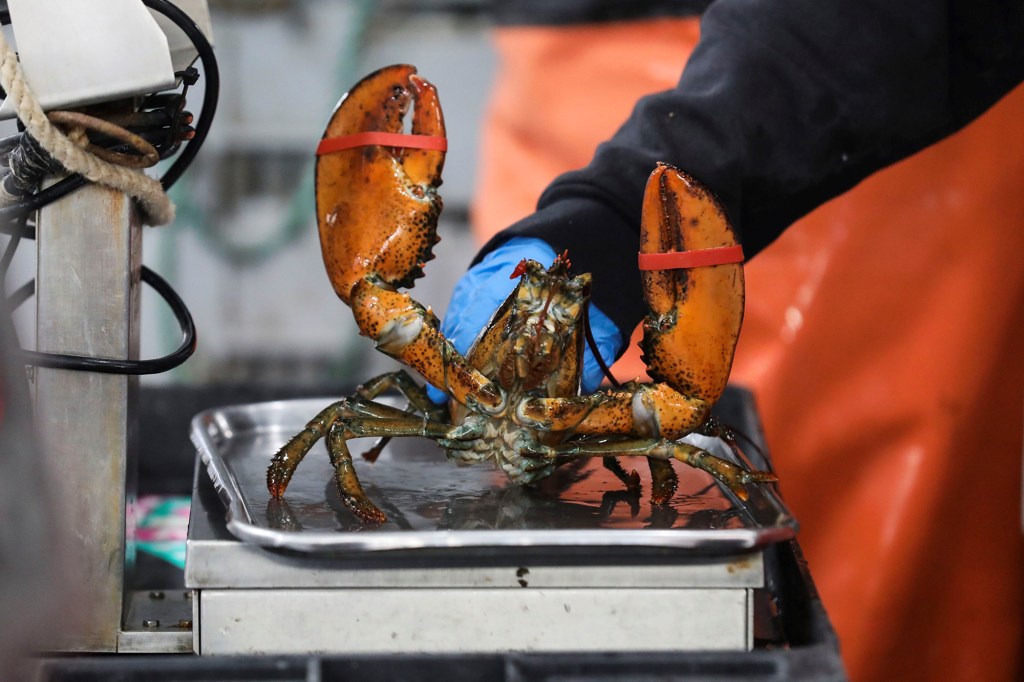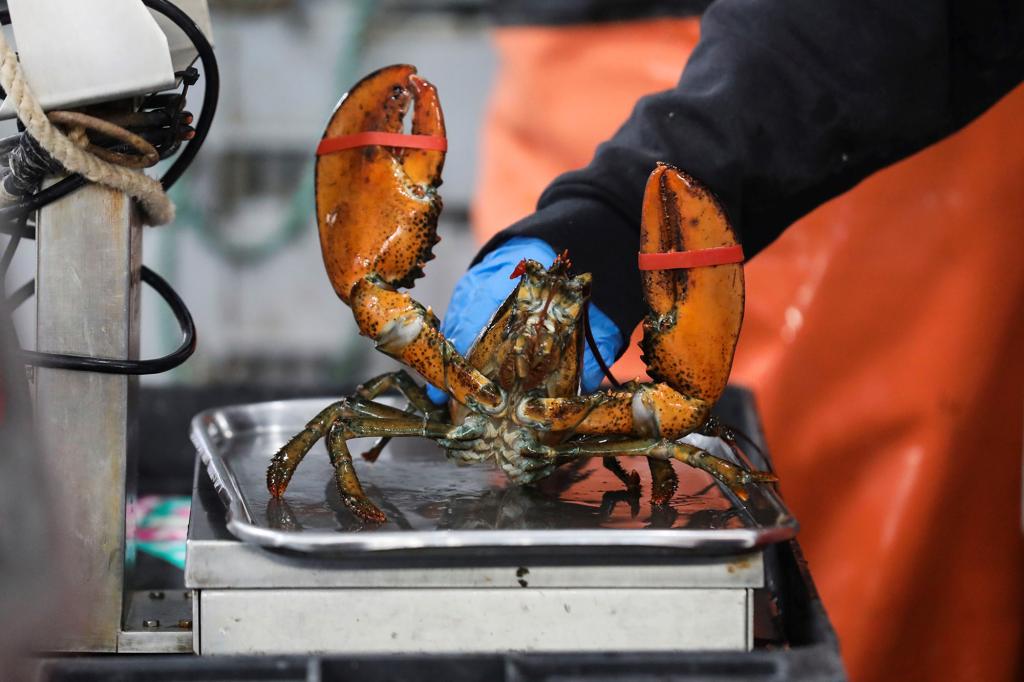Claws out! Maine lobster listed as seafood to ‘avoid,’ angering restaurateurs
This is not the way to butter up the people of Maine.
The claws are out in the New England state after an environmental group put the region’s renowned lobsters on a list of seafood to “avoid” because their harvest is allegedly putting whales in danger.
The Monterey Bay Aquarium’s environment-focused seafood watch program’s decision to “red-list” the tasty crustacean left state officials steaming mad.
“This is an outrageous act with very real-world consequences, and no real scientific evidence,” US Sen. Angus King (I-Maine) fumed to The Post. “It’s infuriating.”
Industry reps and restaurateurs — including owners of beloved lobster roll joints in the Big Apple and the Hamptons — also said the list can go to shell.
“It isn’t well-researched,” said Fred Terry, co-owner of the Lobster Roll in Southampton. “There isn’t a lobster trap in Maine that a right whale couldn’t break the line of and go right through.”
“They’re lumping Maine lobster in with snow crab and king crab fishing,” said Terry, who’s also a director of the New York State Restaurant Association. “The domestic lobster market is probably the most regulated in the country.”
King also took to twitter to blast the aquarium, which complained that the endangered right whale could get caught in fishing and lobster catching equipment.
“[It] is simply absurd and flies in the face of common sense. The Maine lobster industry — one of our state’s most important economic drivers and a source of pride — has long been committed to environmentally conscious, sustainable fishing,” he added in a statement posted on social media.
“There hasn’t been a whale entanglement attributed to Maine lobster gear since 2004 and no documented right whale death has ever been attributed to Maine lobster gear,” he said. “I hope the millions around the world who enjoy the delicious crustacean will see through this farce.”
The group’s report says right whales’ “potential for entanglement” with the “vertical lines associated with lobster gear” is the reason to avoid eating it.
But it cites no specific number of right whale injuries or deaths caused specifically by lobster fishing.
“Due to a lack of information, it is often not possible to assign entanglements to a specific fishery,” the report says. “Documented entanglements from 2015 to 2019 involving pot [or] trap gear or unidentified gear are all attributed to unknown fisheries, of which the lobster fishery may be a part.”
Some New York City-based eateries said they have no plans to yank delicacies such as lobster rolls from their menus.
“I don’t currently have any plans on changing our iconic restaurant’s No. 1 most requested menu Item,” Susan Povich, owner of Red Hook Lobster Pound, told The Post.
“It is my true hope that this designation is revisited, as the lobster industry supports thousands of independent fishermen who in turn support tens of thousands of employees in Maine and hundreds of thousands of workers across the country.”
Asked if the designation will affect prices, she said, “If anything, prices will go down.”
The Monterey Bay Aquarium says it compiles the list, which includes designations such as “best choice” and “avoid,” based on a scientific assessment of fishery practices in the US and Canada.
The group’s Seafood Watch list ranks fisheries based on environmental impact, fair working conditions and economic supply chain benefits.
The list aims to help restaurants and other seafood distributors choose environmentally friendly seafood.
Fewer than 340 North Atlantic right whales currently exist today, and their numbers are decreasing every year, according to the report. For the species’ population to recover, the average number of whales injured or killed by human-related activities such as fishing must be zero annually.













